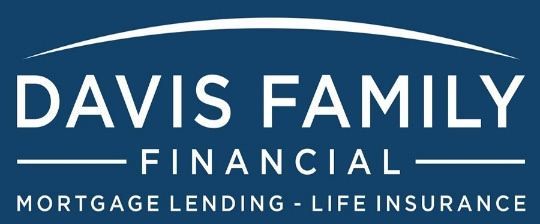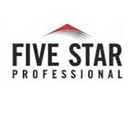Learn the 12 Myths of Financing and How You Can Avoid Financial Disaster!
1. "What’s so special? Aren’t all Lenders and mortgage companies the same? Aren’t all Lenders required to adhere to the same standards and guidelines?"
This is an excellent question. Buyers often believe that every lender has a set of guidelines that are cast in stone. We refer to these as the They Sayers. An example of this is ‘They say you can’t get a mortgage if you’ve just changed jobs or employers.’ Remember, standards and guidelines are merely that.
There are many different types of generic guidelines that form the basis for mortgage approvals. In effect, these are ‘rules’ which lenders use as their baseline for evaluating loans. The most popularly known guidelines are FHA, VA, FNMA (Fannie Mae), and FHLMC (Freddie Mac). These guidelines and procedures are extensive and change frequently, but many lenders will deviate from these guidelines in order to obtain a special competitive advantage.
As a consumer, it is critical that you select a Home Loan Specialist who has a good understanding of the basic guidelines. In addition, you should select a Home Loan Specialist with access to lenders who have the ability to deviate from standard financing guidelines. You can make a big mistake by going to a lender who offers only one method of financing your home.
2. " I’m better off going to a lender that has ‘in-house’ underwriting - right?"
Many mortgage-financing sources will boast that they can just step down the hall to their underwriter and get an expedient (presumably affirmative) loan approval. This also tends to give one the false belief that an underwriter who works within the same company is willing to be more flexible.
I have found that the exact opposite is probably a more accurate assumption. In-house underwriters often exert more caution to avoid any implication of impropriety.
A typical example of my full-service financing is my ability to discuss ‘what-if’ questions with the underwriter who will actually review our loan files. This allows us to review any special situation with the underwriter prior to actually submitting a loan for approval.
3. "I should apply at my bank for my mortgage. After all, they have all of my checking, savings and other accounts. Won’t it be simpler for them to provide my mortgage? Won’t they offer me a special deal and give me some type of preferred rate?"
Typically a commercial bank will own a separate business entity which shares the bank’s name and happens to offer mortgage financing. It is important to note that it is a separate business entity and does not necessarily offer special considerations for bank customers. Interest rates, loan costs, and programs are normally the same as those that the bank’s mortgage company would offer to any prospective customer - regardless of where they bank. Special considerations are rarely given in terms of how a bank’s mortgage subsidiary will evaluate your application for a mortgage loan. The bank’s mortgage subsidiary has no special access to your financial records as you might expect. In other words, the bank’s mortgage subsidiary must request your financial records (to verify account balances, loans, etc.) from the bank - the same as any other lender. This means that your loan process will not be simplified or viewed in any context different from any other applicant making a request from a bank’s mortgage subsidiary.
The perception of most people who go to their bank’s mortgage subsidiary is that their loan payments will always be made to their bank; thus, all of the individual’s banking needs will be ‘under one roof.’ Most mortgage subsidiaries of banks sell their loans on the secondary market and may sell the loan servicing just as any other mortgage company can.
Another important consideration is that a bank mortgage subsidiary usually works with a small number of mortgage products. You will seldom find a wide variety of programs, and your Home Loan Specialist may not have a good comprehension of the many different programs available. You may fail to receive adequate advice as to the best program for your needs.
4. "I must avoid Private Mortgage Insurance (PMI) at all costs. This would mean that I’d have to put 20 percent down. After all, mortgage insurance is just a waste of money. I don’t get anything in return for buying mortgage insurance."
Private Mortgage Insurance is required for most loans that exceed a loan-to-value of 80 percent. Private Mortgage Insurance insures the lender in the event that you default on your mortgage payment and the lender is forced to sell your property at a loss.
We are very fortunate in that mortgage insurance companies have created a number of different plans. Over the years, the cost of mortgage insurance has actually declined.
Deciding whether you should liquidate some assets to amass additional down payment (to avoid the cost of mortgage insurance) requires that you evaluate what you lose by liquidating those assets. Many clients also find that paying other debts is better than applying additional cash toward the down payment. Paying off credit cards and car loans may improve cash flow more than avoiding Private Mortgage Insurance.
Most of the time I find it is more profitable to keep your money working for you in investments other than your home. Your cash (properly invested) in some growth or income-oriented fund will earn significantly more than the offsetting expense of mortgage insurance.
There are several new programs that don't require the full 20% down to waive PMI. Contact me for details!
5. "I’m under contract to buy or build a home. The closing is scheduled beyond the normal times to lock in on interest rate. I’d like to select my Lender now and begin the loan process. The best way to compare different Lenders is to call around and ask what each one is offering on a normal lock-in basis. That will give me an indication of who will have the ‘best deal.’"
This is the worst way to decide the lender you should select. Lenders are just like any other business - the product they are offering for sale is subject to price changes. By the time you get in a position to obtain a commitment (lock-in) for a specific rate and program, you may find that particular lender is no longer offering the best rate.
By being on top of current events in the financial arena, I will see that you are in a position to take advantage of whatever opportunities exist in terms of rates or new mortgage products which are created each week. Many of these new programs have excellent benefits that can translate into significant dollar savings for you. Begin your loan process with a company and a Home Loan Specialist with the knowledge and expertise to locate a competitive rate and advise you on the most appropriate loan program to suit your specific needs.
7. "It is important to get a detailed estimate of closing costs from your lender."
The lender does not control costs associated with purchasing your real estate. I refer to these costs as ‘acquisition costs.’ These include expenses such as attorney fees, title insurance, survey, recording fees, appraisal, and termite inspection. These are costs that anyone incurs when purchasing a home regardless of loan amount or lender. All of these expenses are provided by independent professionals who are not affiliated with your prospective mortgage lender.
When your Home Loan Specialist prepares the estimate of closing costs, he/she will also include an estimate for establishing your escrow account for the future payment of taxes, insurance, and mortgage insurance (if applicable). The appropriate government taxing authority sets property taxes. Unfortunately, property taxes are not negotiable. The insurance company you select sets premiums for homeowners insurance. All mortgage lenders will require that you pay the first year of your homeowners insurance plus two additional months at closing.
The most accurate method to compare lenders (in terms of closing expenses) is to ask about their specific fees for loan origination, underwriting fees, tax service fees, etc. All lenders will offer a different set of scheduled fees and each has a tendency to establish unique names for each of these fees. It is important to make sure to obtain all of these loan charges and fees.
You should also compare discount points charged by various lenders if you are considering advance payment to reduce your interest rate. Discount points may be paid at closing to reduce the interest rate of your loan over the term of your mortgage.
Construction-to-Permanent Loan
8. "I’m building a new house. I need to make sure I get a ‘construction / perm’ loan. This will avoid the huge costs associated with two loan closings. By getting a ‘construction / perm’ loan, I can lock in a rate that will be good well into the future. This allows me to take advantage of the prevailing market rates at this time."
Doesn’t this sound a lot like ‘I’m going to have my cake and eat it too’? There are numerous problems associated with this approach.
With some planning on the front end, you can keep closing costs to a minimum when financing your construction loan and then refinancing your permanent loan.
Most construction-to-permanent loans will not make commitments to lock in prevailing market rates for the time required to build a new home. Even when they do make such commitments, there are finite time periods that must be met in order to take advantage of a rate. The problem with this is the difficulty of accurately forecasting a completion time when building a new home. If your home is completed later than the final commitment date for the loan, you will loose your interest rate and be at the whim of the market.
If a bank offers a ‘convertible’ program, ask what the rate would be today if you had completed your home and were ready to lock in to their conversion option. You will find that this rate is significantly greater than what is available to a mortgage broker.
Mortgage rates can improve between the start of construction and completion. Will your construction-to-permanent program give you the benefit of lower rates? Probably not.
The point is that it is best to deal with someone who can offer you the most flexibility so that you can be certain to have what is the best situation for your specific needs.
9. "I’ve been told that the best type of program is to get a fixed rate loan. I’ve also heard that I should get a fifteen-year loan if there is any way I can manage the additional monthly expense."
You should get together with an expert who can explain the different types of loan programs. Each program may have its own series of special benefits for you and your specific situation. I have found that when considering such an important decision it is best to be confident that you have explored all possibilities. It may be that a fixed rate is the best type of loan program. It may also be that you can save a significant amount of money by exploring alternative adjustable programs, balloon programs, and others.
Currently, there are almost as many different programs as there are housing options. A few of the considerations you should consider are anticipated time in the home. Available asset base, current income situation versus future income situation, etc. It’s wise to know that you have picked the most appropriate program based upon what is actually occurring in your life at this time.
If you pay off a loan in fifteen years versus thirty years, you will obviously save a lot of money in interest expense. It is important to note that this is a saving because you will repay the loan in half the time - not because of significant savings in interest rates. You would expect that there would be a much lower rate since the loan has a quicker repayment and, therefore, less risk. The difference in interest rates is not that significant, but the payments may be as much as 25 percent higher each month.
I have seen clients select a fifteen-year mortgage only to discover that the monthly payments are just a little too high for their budget.
10. "I’m considering refinancing. I’ve been told that I must get a rate that is at least 2 percent lower than my current rate to justify the expense of refinancing."
Nobody seems to know where this mysterious 2 percent rule of thumb originated. Actually this decision should be based on your specific objectives for looking into refinancing. You may be considering a home improvement - trying to consolidate some of your other debts - exploring an alternative method for financing your child’s education. There are many different reasons you might consider refinancing your home loan.
To decide if it makes sense for you to consider refinancing, carefully review the available options. Determine how much the refinancing transaction will cost you. Despite the fact that you can add it ‘back into the mortgage,’ it can still cost you something. You also need to carefully review what this potential transaction may mean to you in terms of your monthly budget and cash flow. Only after examining these variables is it possible to evaluate whether the refinance makes sense.
11. "When I’m negotiating on the purchase of my new home, I should focus simply on buying the home as cheaply as possible and disregard any offers of concessions for financing by the seller of the property."
Closing Costs are a significant portion of the cash that is required for you to purchase the property. Depending upon the purchase price, it is possible for costs to run as high as 2 percent to 5 percent of the purchase price. It’s important for you to be aware of these costs and determine whether you will pay for them by writing a check at closing or have the seller pay them as part of your agreement to purchase the property.
Most lenders allow the seller to pay closing costs up to certain limitations. In my opinion, this is the most overlooked benefit buyers have at their disposal. You will be able to get much more bang for your buck if you allow the seller to pay your closing expenses.
Finally. . . THE most critical financial mistake!
12. "I’m just beginning to plan my home purchase. It’s too early to begin shopping for my loan, isn’t it?"
Absolutely not!!
Recently a couple decided to submit an offer on the home of their dreams. They had looked for months and finally found ‘the one.’ Before writing the contract, they decided to talk to a Home Loan Specialist to make sure they would qualify. While they delayed for this, another contract came in on the property - and it was gone!
I encourage my clients to take advantage of my Pre-Qualification process immediately. The couple could have avoided their disappointing set back by becoming pre-qualified for their loan even before they started shopping for their home.
The two major obstacles to owning your dream home are
1) the seller’s acceptance of the offer and
2) your approval for the loan.
We are able to offer Pre-Qualification. This amazing tool allows you to shop with total confidence
and with the ‘clout’ normally reserved for cash purchasers
The 12 Greatest Mistakes to Avoid When Financing Your Home
Call Geoffrey Davis, The Frisco Mortgage Guy today 214-529-9622
Frisco Mortgage Guy® is a registered US trademark owned by FriscoMortgageGuy.com, LLC.
FriscoMortgageGuy.com™ is an independently owned marketing company.
Geoffrey Davis is its owner and is licensed by the Nationwide Mortgage Licensing System #206192
Geoffrey Davis is an Independent Life Insurance Agent with Davis Family Insurance, LLC
© Copyright
All Rights Reserved






